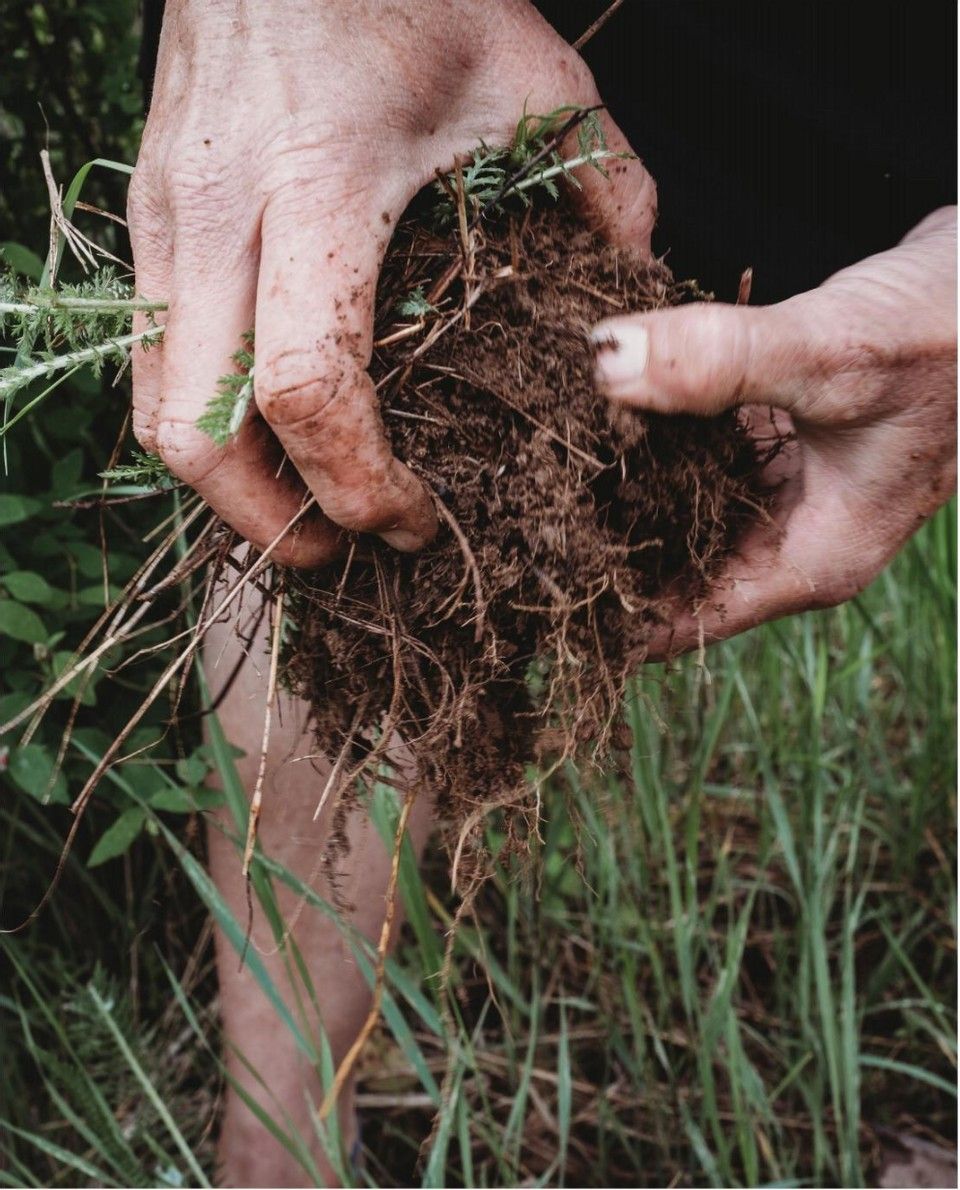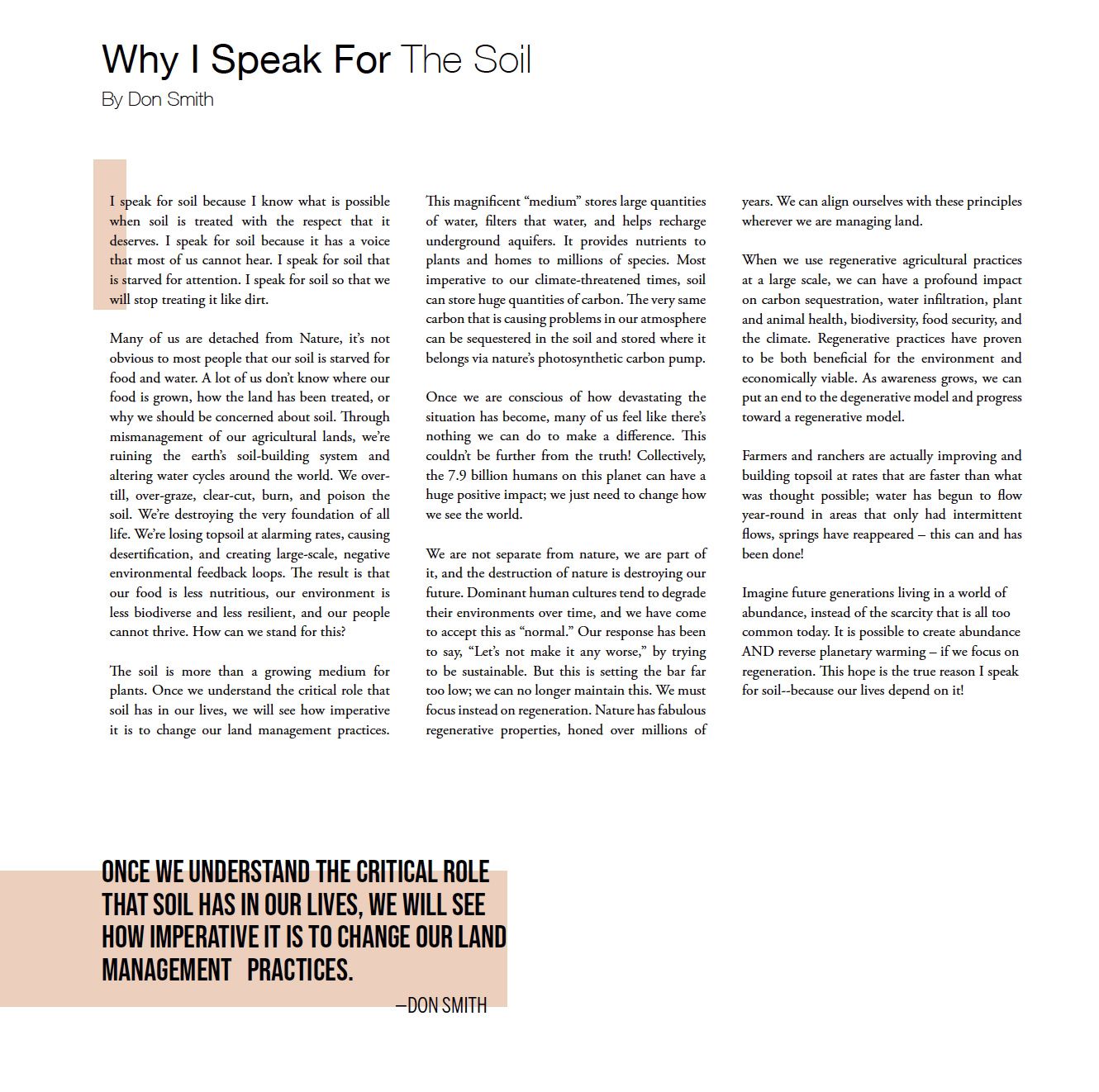Speaking For The Soil
A beautifully worded piece from our friends at Kiss The Ground!
A beautifully worded piece from our friends at Kiss The Ground!

This month as we dive into all things regenerative, we were excited to share this touching essay from our friends over at
. This comes from their magazine and is honoring the life force of our Earth, the soil.Kiss The Ground is on a mission to awaken people to the possibilities of regeneration and inspire participation in this movement through media, communications, education, workshops, immersive programming, and advocacy. We are proud to partner with them in sharing this important initiative to make our world a better place! Let us all strive to leave this planet better than how we found it.

I speak for the soil because I know what is possible when soil is treated with the respect that it deserves. I speak for the soil because it has a voice that most of us cannot hear. I speak for the soil that is starved for attention. I speak for the soil that we will stop treating it like dirt.
Many of us are detached from Nature, it’s not obvious to most people that our soil is starved for food and water. A lot of us don’t know where our food is grown, how the land has been treated, or why we should be concerned about the soil. Through mismanagement of our agricultural lands, we’re ruining the earth’s soil-building system and altering water cycles around the world. We over-till, over-graze, clear-cut, burn, and poison the soil, we’re destroying the very foundation of all life. We’re losing topsoil at alarming rates, causing desertification, and creating large-scale, negative environmental feedback loops. The result is that our food is less nutritious, our environment is less biodiverse and less resilient, and our people cannot thrive. How can we stand for this?
The soil is more than a growing medium for plants. Once we understand the critical role that soil has in our lives, we will see how imperative it is to change our land management practices.
This magnificent “medium” stores large quantities of water, filters that water, and helps recharge underground aquifers. It provides nutrients to plants and homes to millions of species. Most imperative to our climate-threatened times, soil can store huge quantities of carbon. The very same carbon that is causing problems in our atmosphere can be sequestered in the soil and stored where it belongs via nature’s photosynthetic carbon pump.
Once we are conscious of how devastating the situation has become, many of us feel like there’s nothing we can do to make a difference. This couldn’t be further from the truth! Collectively, the 7.9 billion humans on this planet can have a huge positive impact; we just need to change how we see the world.
We are not separate from nature, we are a part of it, and the destruction of nature is destroying our future. Dominant human cultures tend to degrade their environments over time, and we have come to accept this as “normal.” Our response has been to say, “Let’s not make it any worse,” by trying to be sustainable. But this is setting the bar far too low; we can no longer maintain this. We must focus instead on regeneration. Nature has fabulous regenerative properties, honed over millions of years. We can align ourselves with the principles wherever we are managing the land.
When we use regenerative agricultural practices at a large scale, we can have a profound impact on carbon sequestration, water infiltration, plant and animal health, biodiversity, food security, and the climate. Regenerative practices have proven to be both beneficial for the environment and economically viable. As awareness grows, we can put an end to the degenerative model and progress toward a regenerative model.
Farmers and ranchers are actually improving and building topsoil at rates that are faster than what was thought possible; water has begun to flow year-round in areas that only had intermittent flows, springs have reappeared—this can and has been done!
Imagine future generations living in a world of abundance, instead of the scarcity that is all too common today. It is possible to create abundance AND reverse planetary warming—if we focus on regeneration. This hope is the true reason I speak for the soil—because our lives depend on it!